- Home
- Heather Graham
Waking the Dead Page 3
Waking the Dead Read online
Page 3
“Danni!”
“Oh, Niles, I’m sorry. I didn’t mean that.”
He grinned back at her. “When are we going to have another show of your paintings?” He shuddered. “Now that horrible case with the cult is well behind you.”
Danni shrugged. She’d actually been working the past few weeks. Working on her painting—and on her life. It was barely a year ago that she’d discovered her father had led a secret existence before his death—and that she’d inherited not only his earthly goods, but his rather unearthly ones, as well.
Niles was referring, of course, to the case that focused on the bust of Pietro Miro. She’d known nothing about the nature of real evil when she’d first become entangled in that situation, and now she knew too much. Her father hadn’t just been a collector of the priceless and unusual; he’d also been a warrior of sorts, saving others from the forces of evil. It made her feel, at times, as though she was dreaming about an odd graphic novel in which she simultaneously played a role. Before that strange case last year, she would never have believed that evil—or the wicked intentions of others—could reside in an object like Pietro Miro’s marble bust.
“Sorry,” Niles said quickly. “Maybe I shouldn’t have asked. That nasty mess with the cult wasn’t that long ago. And you were close to several people who turned out to be involved.”
“I’m fine. That’s all over. Billie, Bo Ray and I are doing well at the store,” Danni told him. “And I’m always grateful for your interest and support, Niles.”
“So. I have all these beautiful pieces in here—gorgeous street scenes, paintings of musicians so good you can practically hear them, the Mighty Mississippi, Jackson Square, the cemeteries and the French Quarter—and you head right over to the giclée of Ghosts in the Mind.” He raised his brows. “Back to your work for a minute. Let me remind you that we haven’t seen anything in almost a year.”
“I’ve been working. I don’t have anything ready yet,” Danni said.
“Well, let us know when you do. You’re good,” he added. “So is Mason. He just hasn’t had the chance he needs. But his time will come... Meanwhile we can admire the giclée. It is beautiful. At a distance. And everyone’s drawn in. Hubert was a talented artist, and this piece is different, even for him. He was fascinated by the dark side of things, but rarely did he come up with something that teased the eye with such exquisite beauty—only to display such wickedness in the, er, details?”
Danni nodded. “His Weeping Angel at Dusk is sad and dark, I guess, but very beautiful.”
“You know something about the artist, right?”
“I was an art major, remember? I don’t know too much, and he didn’t paint that many pieces, since he died so young. But he’s considered a relatively minor artist. He’s hardly ever mentioned these days.”
“That was true until recently,” Niles said. “Because, of course, Ghosts in the Mind, his most famous work, went missing for years and was only discovered a few months ago—and sold at auction. There’s a story to that, of course, but as to Hubert, well...like you said, he died young. We might have had so many more wonderful pieces had he lived longer. His use of perspective was extraordinary. Not many artists could create completely different images, pictures within pictures, in such an effective way.”
“If I’m remembering my art history correctly, the original was oil on canvas and was painted in Switzerland during the summer of 1816. The world endured what they now refer to as ‘the year without a summer,’” Danni said.
“Apparently, a natural climate change at that time was enhanced by the eruption of a volcano—Mount Tambora in the Dutch East Indies,” Niles explained. “I got interested in this stuff because of Ghosts in the Mind, so I’ve been reading about it. Anyway, the volcano erupted in 1815 but the fallout changed the weather and the atmosphere all over Europe, even a year later. It snowed in June! In the United States, too,” he said. “Anyway, that terrible weather caused a great many miserable days, but also brought about this wonderful, chilling piece of art.”
“Don’t forget, Mary Shelley’s Frankenstein came out of that summer, too.”
“Yes, yes, of course! And it was influenced by the fact that scientists all over were playing with electricity. Mary was familiar with some of the greatest scientific minds of her time. It’s a brilliant book,” he said in a reverent voice. “One that looked at what life was and what it wasn’t...just like this painting looks at the masks we wear on the outside while we hide our real thoughts on the inside. Most critiques have agreed that this was Henry Sebastian Hubert’s finest work. Pity, pity, pity!”
“He died by his own hand,” Danni murmured.
Niles shook his head dismissively. “So said the bumbling authorities back then! Tragically, he was found in the tower where he was painting, seated before his masterpiece. They said it was poison. What did they know?” Niles demanded.
Danni laughed. “Probably a lot more than we suspect. Remember, anatomy was the rage back then. Corpses were stolen for dissection.... Burke and Hare were busy digging up corpses to sell and then killing people for the money their bodies would bring. They—”
“That wasn’t until later,” Niles interrupted.
“Yes, but they weren’t the first,” Danni said. “Different countries had different laws on acquiring corpses for medical purposes and learning about anatomy and so on. The thing is, by the early 1800s, doctors and scientists had been dissecting cadavers for centuries. Medical people couldn’t cure most diseases, but they’d certainly learned about anatomy. Still, you have a point—he might have been poisoned and they might have missed it. But since Hubert was alone when he died, his fingers curled around the wineglass that held whatever toxin it was, I’m sure they were right, and he committed suicide. The poor man couldn’t run to a doctor and get a prescription for an antidepressant. Yes, it’s a tragedy. Sadly, history is full of such tragedies. Shelley drowned in a lake and Byron was only in his thirties when he died. Mary Shelley lost three of her four children at very early ages—it was all very sad and tragic.”
Niles still didn’t seem convinced that anything was as sad as the death of an artist.
“So, did someone just license the painting for giclée reproduction?” she asked Niles.
“Like I was saying, the painting disappeared soon after Hubert died, reappeared in some kind of storage, in England, then ended up in a museum in France. It disappeared again during World War II.”
“This sounds familiar. Wasn’t it stolen by the Nazis?”
“Perfectly true!” Niles said excitedly. “It seems an old Nazi war criminal died in Brazil within the past year, and the painting was found wrapped and buried in a vault. The Brazilian government returned it to the French museum, but the museum’s having hard times and gratefully put it on the auction block. No one knows who purchased the original yet. These things can be so hush-hush and done through corporate names and all that. But the new owner authorized a gallery to make a copy, and from that copy, they were allowed to do a giclée limited edition of two thousand. And—” he lowered his voice as if he were speaking to a coconspirator “—there’s a rumor that the purchaser was from here—from NOLA! I was incredibly lucky. I scored a hundred of them for the gallery. I’ve already sold sixty-six.”
Danni studied the copy of the painting again. It was as interesting, as rich, as complex, as the human/monster tale about Dr. Frankenstein’s creation.
“Shall I save one for you?” Niles asked.
Danni wasn’t sure. On the one hand, the giclée of the painting was beautiful. It was also terribly dark and seemed to be a warning regarding human nature. Did a man smile and offer a rose while thinking of murder? Were children innocently playing, already on the way to cruelty and a callous disregard for life?
A lady in an elaborate feathered hat swept by to gain Niles’s attention; he excused himself to Danni, winking as he did so. “I’ll save one!” he promised.
“Great. Lovely. I can keep it with
the coffin and guillotine and shrunken heads down in Dad’s collection,” she muttered to herself.
“Hey, Danni.”
As she turned to leave, she almost crashed into Mason Bradley, Niles’s sometime-salesman and sometime-artist. Mason’s forte was restoration and he was very good at it. Like most artists, he worked on learning his own style by studying the masters and occasionally making copies. He was thirty-eight, tall, blond and handsome, and was working on establishing himself and making a name in the French Quarter by painting cemetery scenes. He had a special style, realistic yet slightly exaggerated, that made his paintings both poignant and eerie.
“Mason, hey, how are you?” she asked.
“Great, thanks. How about you? Are you doing any work? I know it’s been hard for you since your dad died.”
“I’m doing okay.”
“I see you’ve got the dog—Wolf, right?” Mason smiled at the dog but made no attempt to touch him. She wondered if he was afraid of Wolf or simply wasn’t fond of dogs.
“Yes, Wolf.”
“Well, I guess you got something out of the relationship when Quinn left. If you need to talk, get some coffee, go for a drink—have a shoulder to cry on—well, I’m here,” he told her sympathetically.
She bent her head and couldn’t help smiling. “I don’t need to cry. Honestly. Quinn and I... He’s in Texas.”
“I’m glad. You deserve someone who...well, someone who’s a little more...stable.”
“I’m just fine, Mason.”
“Enjoying the art of Hubert, I see.”
“There’s...nothing quite like it, is there?”
Mason stared at the giclée and nodded. “The story is that it was Hubert’s entry into the ‘ghost’ contest that went on during the summer that wasn’t a summer—that Lord Byron challenged him to paint something as frightening as anything they could write. He did a damned good job.”
“I agree. Oh! Mason, I’m seeing more and more of your cemetery prints out there! You’re doing great. The paintings are wonderful—and I’m delighted that the prints seem to be everywhere.”
“Yes, but the paintings themselves don’t always sell. People don’t necessarily want to pay for an original. So I’m still a struggling artist, you know how that goes,” Mason said. “But at least I’m not a starving artist.” He took her empty champagne glass. “I guess I should get back to selling. I know we’ll keep one of the Hubert giclées for you. Hey,” he told her, lowering his voice as if sharing a confidence. “There’s a rumor that the collector who bought the piece is here—right here in New Orleans!”
“Niles mentioned that.”
“It’s such a unique object,” Mason said reverently. “Anyway, my dear friend, remember we love you, Niles and I. And don’t forget, if you need me, I’m here!”
“Thank you.” Danni smiled as Mason hurried away to attend to another customer and then found herself turning back to the giclée.
It was surpisingly difficult to tear herself away from Ghosts in the Mind. Determined, she finally did. Billie McDougall—her Icabod Crane/Riff Raff lookalike and helper in all things—had been running the store alone. Bo Ray Tomkins, their clerk, hadn’t been with them long, and generally worked on their bookkeeping and inventory, although he also assisted with sales when necessary. Billie didn’t care if he manned the counter on his own, but still, she’d been gone for a few hours.
Danni waved a goodbye to Mason, who returned the gesture, and stepped out onto Royal Street, Wolf at her heels. The sun shone down on handsome balconies, some still wearing their Mardi Gras apparel or banners and ribbons and signs. Some sported chairs and plants with vines that seemed to trickle down, adding to the faded elegance that was so much a part of the French Quarter.
But just as she started to head back to her own shop, Wolf began to bark frantically and pull at his leash. He was very well trained, but so excited she was afraid he’d drag her across the street.
“Wolf!”
Then she realized that a figure was standing there, watching her.
He was wearing a light casual coat, perfect for the spring weather. It hung nicely on his six-four frame. He wore sunglasses and a brimmed hat, which hid his short sandy-blond hair and hazel eyes. But he smiled slowly, and she’d know that smile anywhere...just as she knew him.
Her heart quickened, and she felt exhilaration sweep through her.
She was deliriously happy to see him.
And yet...
His appearance made her tremble. Was he back because he lived here, because he wanted to see her?
Or was something about to happen?
Quinn.
Quinn had returned.
Chapter Two
DANNI MEANT TO greet Quinn with decorum. He’d been in Austin at the request of a friend in the police department there. She’d read what she could on the internet about the murder and spoken to him a few times on the phone, but they had determined that they weren’t going to call each other every day, that they were going to take it slowly as far as their relationship went. They were both well aware that they’d face difficult situations as time went by.
The hell with decorum.
“Quinn!” She shouted his name and barely checked the road for cars before she went streaking across it.
The dog beat her to him. Wolf knew not to jump, but maybe he’d decided the hell with decorum, too. On his hind legs, the dog was the size of the man. Quinn gave him loving affection, calling him an old mutt, and then became the master, ordering him to sit. Wolf seemed to understand that he’d been assigned to watch Danni; Quinn would always be his real master.
So the dog and I both just wait for him to come back, Danni thought.
When Quinn looked at her, she tried very hard not to smile, to let him make the first move.
Then she couldn’t resist anymore and threw herself into his arms. He caught her, lifted her, pulled her tight against him and met her with a kiss.
It was a decorous kiss, really.
However, some fool walking around them muttered, “Get a room!” And then someone else said, “Oh, Robbie, check that out!” and then a third person, presumably Robbie, said, “Hey, it’s New Orleans!” Someone else sniggered and added, “But Bourbon Street’s one over!”
Danni and Quinn listened, they laughed and they drew apart, still holding hands, looking each other up and down as if a few weeks could have changed the other and anxious to see that it hadn’t.
No harm had come to Quinn, Danni concluded. He was perfect or, at least, perfect to her, over six feet, and as muscular as an athlete. His hazel eyes were vibrant, so alive, so well set in the classic structure of his face. He had a great jaw—a really great jaw. Square, the kind that made him appear to be in control on every occasion. And yet he had sensuous lips and the ability to laugh. She smiled, remembering a time when she’d actively disliked him. But that had been right after her father had died—and before she’d known exactly what her father had left her.
She pulled away, studying him. “Texas?” she asked.
“Very strange,” he told her. “And sad.”
“But it was solved?”
He nodded. “But there was really nothing unusual about the situation. It looked like the guy had killed himself. He had a vial of sleeping pills and a bottle of beer at his side, and there was no forced entry—nothing to indicate anything other than suicide.”
“But you already knew it wasn’t suicide.”
“Yeah. The guy had been married for thirty years. Everyone thought that he and his wife were as happy as could be. They had a grown family, and husband and wife were both due to retire. But it turns out that he was the family dictator and had verbally abused them all for years. Still, the wife took it. But then he started using a cream for low testosterone and, apparently, the cream caused the wife to grow a beard. I guess that was the final straw for her. He was sitting around watching TV and yelled at her to get him a beer. She brought him a beer, all right, and filled it up with
the sleeping pills. She did everything correctly, called the police, said she’d been asleep and she came out and found him and...” He stopped to take a breath. “And she killed a man who’d probably dominated her and in a way tortured her for most of her life—because she just couldn’t tolerate the hair on her face. Davy, the cop in Texas who called me, didn’t like it from the beginning but couldn’t prove she’d done it. When we did prove it, I don’t think he was particularly happy.”
“What’ll happen to her?” Danni asked.
Quinn shrugged. “Hopefully, the courts will take her life into consideration.”
“How did you prove it?”
“We went over and over the evidence. Her fingerprints were on the beer can, but of course they were on all the groceries in the house. Eventually, I simply asked her—and she broke down. It was probably a matter of timing, because Davy had questioned her repeatedly. When I asked, she was ready to confess. The woman wasn’t a career criminal or a psychopath. She just couldn’t take his abuse anymore.”
Danni nodded. She’d greeted him; now she stood on the street feeling a little awkward. “So, you’re home.”
His eyes touched hers. “You told me to go,” he reminded her softly. “You said we needed to make sure we were good at being apart.”
Danni lowered her head and nodded again.
I wasn’t good at it at all!
“So, yes, I went when a friend called. We solved the situation. I’m grateful, and I’m home. Except that I’d hardly gotten back before I was called in on a case here,” he said.
“Oh?” Danni asked. “By...Larue?” When he was a cop in the city, Quinn had been partnered with Jake Larue. She was well aware that Larue kept a lot of his thoughts and opinions to himself, but if there was some out-of-the-ordinary crime, he knew he didn’t have the special skills to comprehend what was behind it.
He did know, however, that there was something different about Quinn, and he was quick to call him when the situation warranted extra eyes—eyes that might see more deeply.

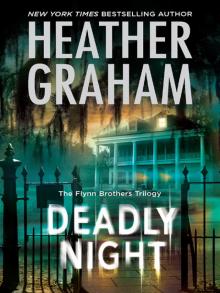 Deadly Night
Deadly Night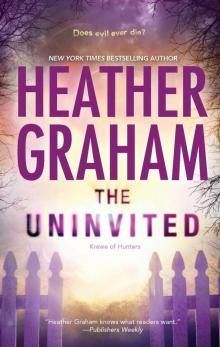 The Uninvited
The Uninvited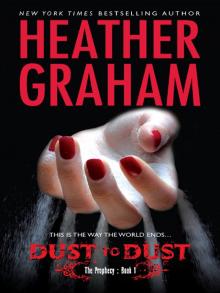 Dust to Dust
Dust to Dust Heart of Evil
Heart of Evil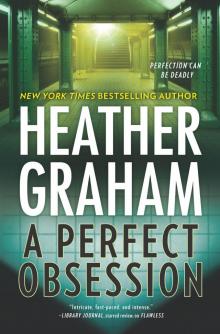 A Perfect Obsession
A Perfect Obsession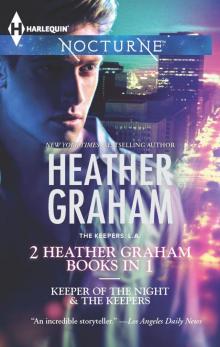 The Keepers
The Keepers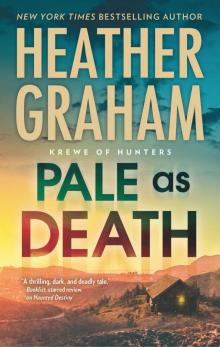 Pale as Death
Pale as Death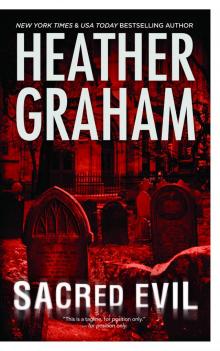 Phantom Evil
Phantom Evil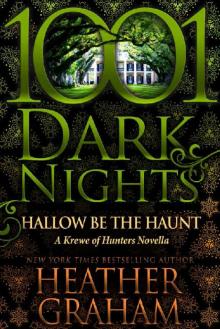 Hallow Be the Haunt
Hallow Be the Haunt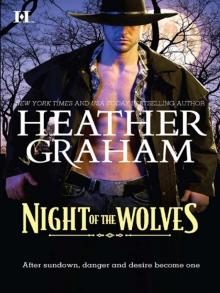 Night of the Wolves
Night of the Wolves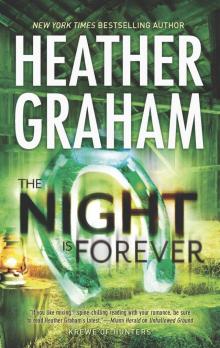 The Night Is Forever
The Night Is Forever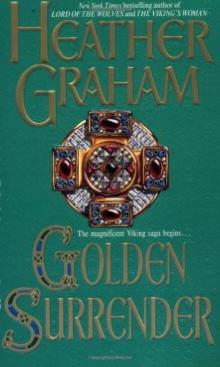 Golden Surrender
Golden Surrender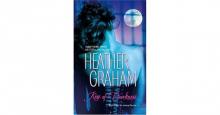 Kiss of Darkness
Kiss of Darkness Beneath a Blood Red Moon
Beneath a Blood Red Moon A Dangerous Game
A Dangerous Game Ghost Shadow
Ghost Shadow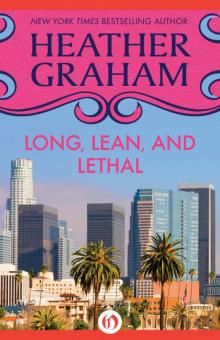 Long, Lean, and Lethal
Long, Lean, and Lethal Fade to Black
Fade to Black The Rising
The Rising And One Wore Gray
And One Wore Gray Rebel
Rebel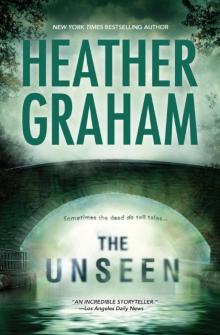 The Unseen
The Unseen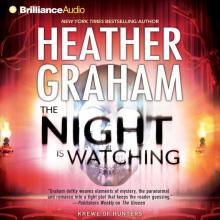 The Night Is Watching
The Night Is Watching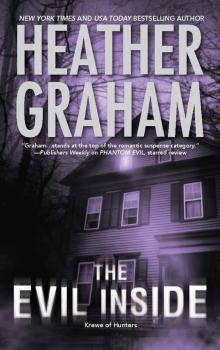 The Evil Inside
The Evil Inside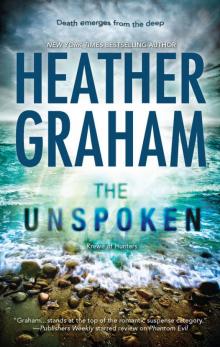 The Unspoken
The Unspoken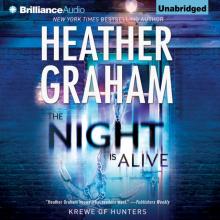 The Night Is Alive
The Night Is Alive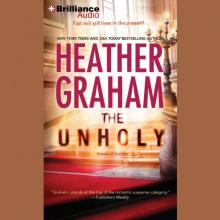 The Unholy
The Unholy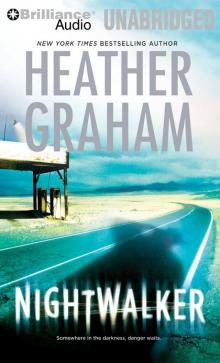 Nightwalker
Nightwalker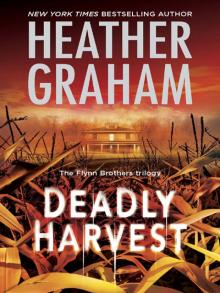 Deadly Harvest
Deadly Harvest An Angel for Christmas
An Angel for Christmas A Pirate's Pleasure
A Pirate's Pleasure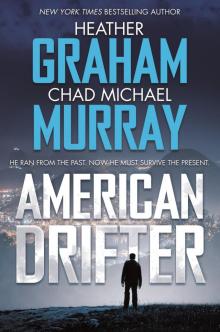 American Drifter
American Drifter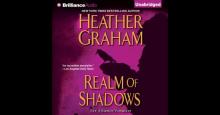 Realm of Shadows
Realm of Shadows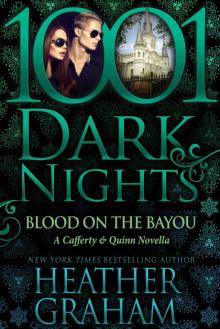 Blood on the Bayou
Blood on the Bayou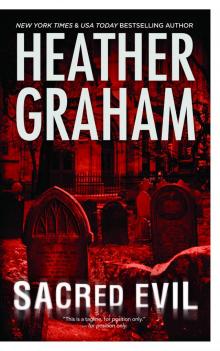 Sacred Evil
Sacred Evil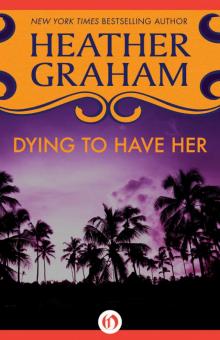 Dying to Have Her
Dying to Have Her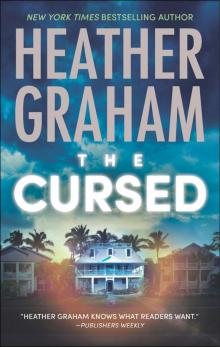 The Cursed
The Cursed Captive
Captive Hurricane Bay
Hurricane Bay Drop Dead Gorgeous
Drop Dead Gorgeous Ghost Memories
Ghost Memories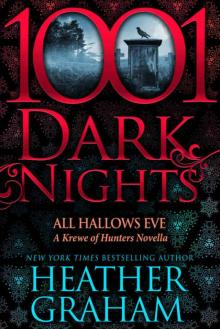 All Hallows Eve
All Hallows Eve Dying Breath
Dying Breath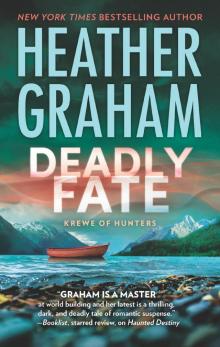 Deadly Fate
Deadly Fate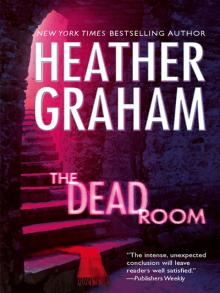 The Dead Room
The Dead Room Lord of the Wolves
Lord of the Wolves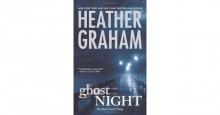 Ghost Night
Ghost Night Ghost Walk
Ghost Walk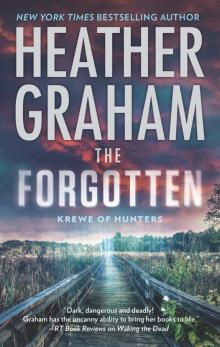 The Forgotten
The Forgotten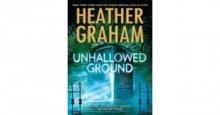 Unhallowed Ground
Unhallowed Ground One Wore Blue
One Wore Blue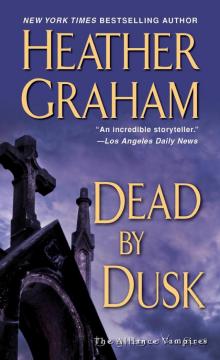 Dead By Dusk
Dead By Dusk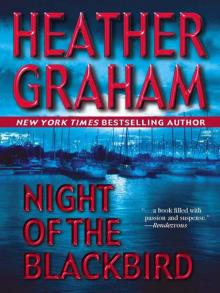 Night of the Blackbird
Night of the Blackbird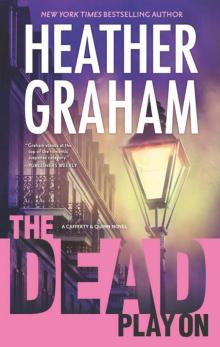 The Dead Play On
The Dead Play On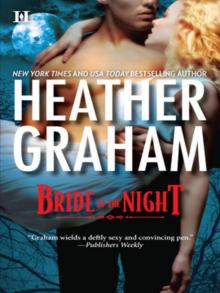 Bride of the Night
Bride of the Night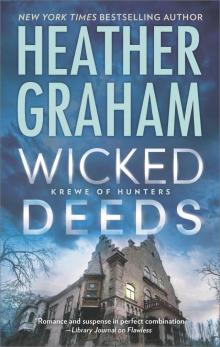 Wicked Deeds
Wicked Deeds The Forbidden
The Forbidden Triumph
Triumph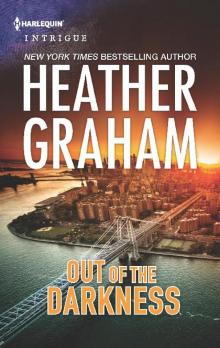 Out of the Darkness
Out of the Darkness Love Not a Rebel
Love Not a Rebel The Last Noel
The Last Noel Tall, Dark, and Deadly
Tall, Dark, and Deadly The Death Dealer
The Death Dealer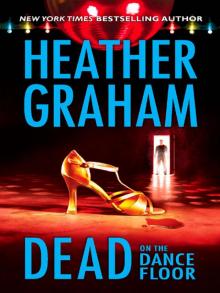 Dead on the Dance Floor
Dead on the Dance Floor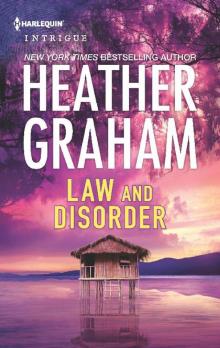 Law and Disorder
Law and Disorder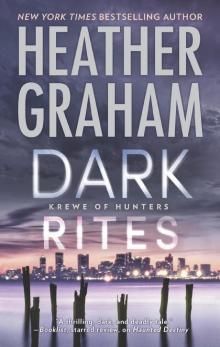 Dark Rites
Dark Rites New Year's Eve
New Year's Eve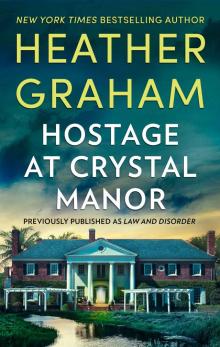 Hostage At Crystal Manor
Hostage At Crystal Manor And One Rode West
And One Rode West Home in Time for Christmas
Home in Time for Christmas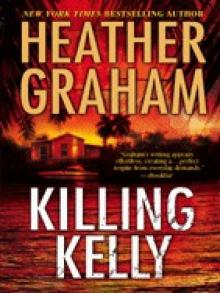 Killing Kelly
Killing Kelly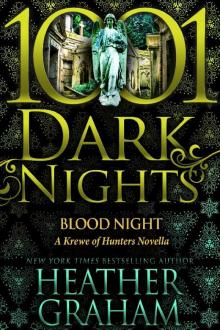 Blood Night
Blood Night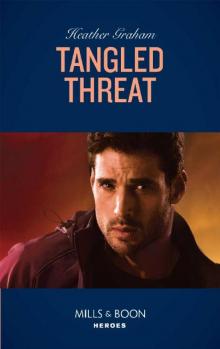 Tangled Threat (Mills & Boon Heroes)
Tangled Threat (Mills & Boon Heroes)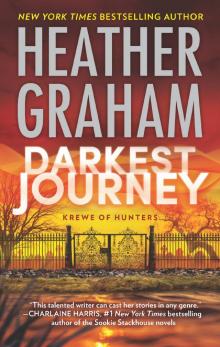 Darkest Journey
Darkest Journey Glory
Glory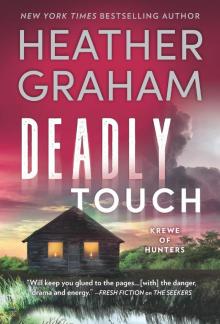 Deadly Touch
Deadly Touch An Unexpected Guest
An Unexpected Guest Night of the Vampires
Night of the Vampires Seize the Wind
Seize the Wind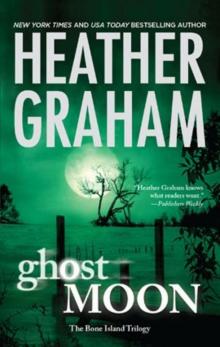 Ghost Moon
Ghost Moon The Vision
The Vision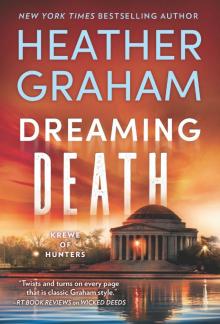 Dreaming Death
Dreaming Death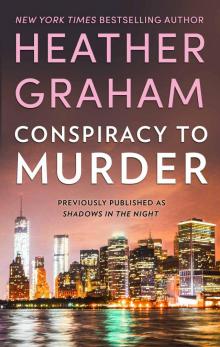 Conspiracy to Murder
Conspiracy to Murder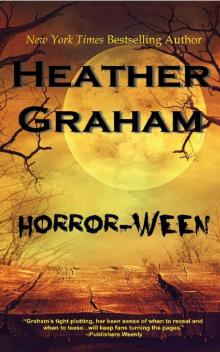 Horror-Ween (Krewe of Hunters)
Horror-Ween (Krewe of Hunters)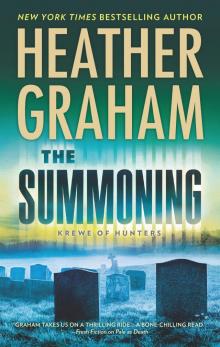 The Summoning
The Summoning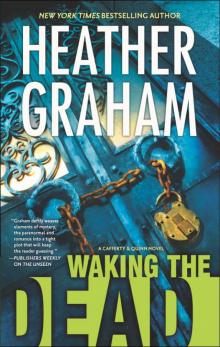 Waking the Dead
Waking the Dead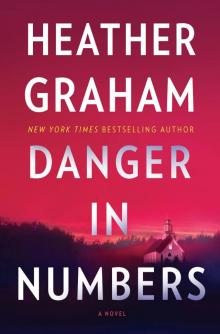 Danger in Numbers
Danger in Numbers The Hidden
The Hidden Sweet Savage Eden
Sweet Savage Eden Tangled Threat ; Suspicious
Tangled Threat ; Suspicious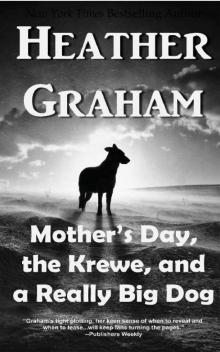 Mother's Day, the Krewe, and a Really Big Dog
Mother's Day, the Krewe, and a Really Big Dog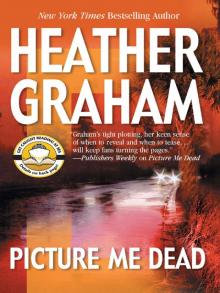 Picture Me Dead
Picture Me Dead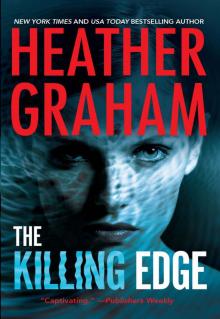 The Killing Edge
The Killing Edge St. Patrick's Day
St. Patrick's Day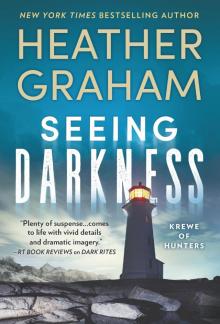 Seeing Darkness
Seeing Darkness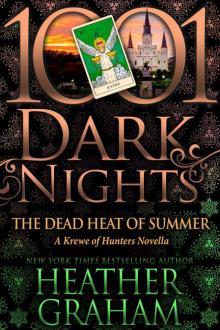 The Dead Heat of Summer: A Krewe of Hunters Novella
The Dead Heat of Summer: A Krewe of Hunters Novella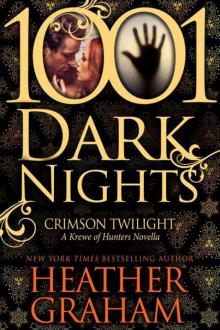 Crimson Twilight
Crimson Twilight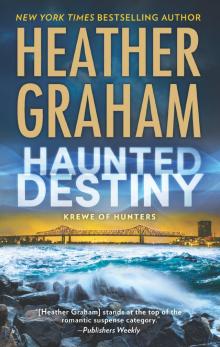 Haunted Destiny
Haunted Destiny Devil's Mistress
Devil's Mistress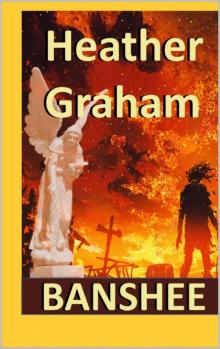 Banshee
Banshee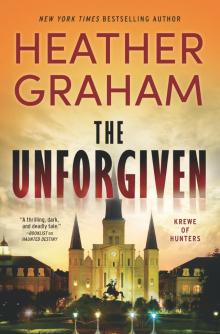 The Unforgiven
The Unforgiven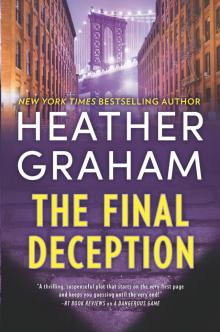 The Final Deception
The Final Deception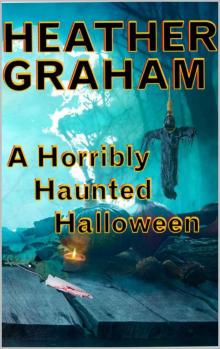 A Horribly Haunted Halloween
A Horribly Haunted Halloween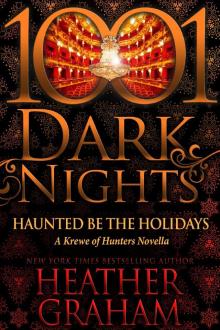 Haunted Be the Holidays
Haunted Be the Holidays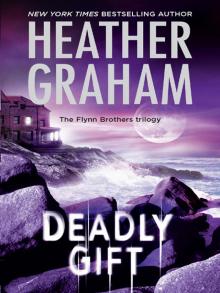 Deadly Gift
Deadly Gift Easter, the Krewe and Another Large White Rabbit
Easter, the Krewe and Another Large White Rabbit Haunted
Haunted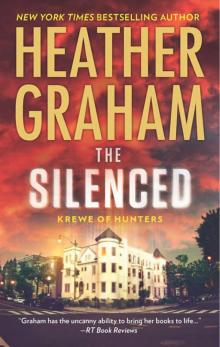 The Silenced
The Silenced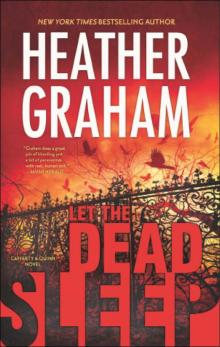 Let the Dead Sleep
Let the Dead Sleep Christmas, the Krewe, and Kenneth
Christmas, the Krewe, and Kenneth Big Easy Evil
Big Easy Evil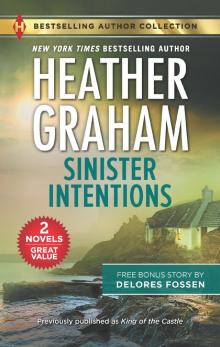 Sinister Intentions & Confiscated Conception
Sinister Intentions & Confiscated Conception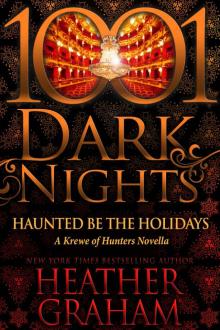 Haunted Be the Holidays: A Krewe of Hunters Novella
Haunted Be the Holidays: A Krewe of Hunters Novella Blood Red
Blood Red A Perilous Eden
A Perilous Eden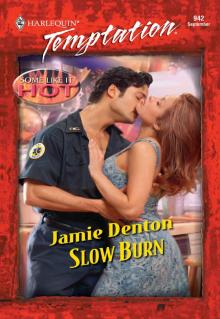 Slow Burn
Slow Burn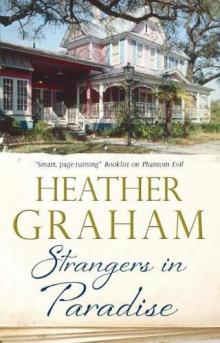 Strangers In Paradise
Strangers In Paradise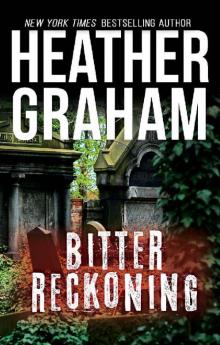 Bitter Reckoning
Bitter Reckoning Krewe of Hunters, Volume 1: Phantom Evil ; Heart of Evil ; Sacred Evil ; The Evil Inside
Krewe of Hunters, Volume 1: Phantom Evil ; Heart of Evil ; Sacred Evil ; The Evil Inside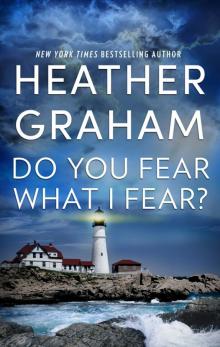 Do You Fear What I Fear?
Do You Fear What I Fear?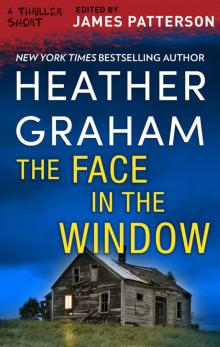 The Face in the Window
The Face in the Window Krewe of Hunters, Volume 3: The Night Is WatchingThe Night Is AliveThe Night Is Forever
Krewe of Hunters, Volume 3: The Night Is WatchingThe Night Is AliveThe Night Is Forever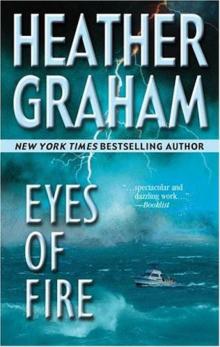 Eyes of Fire
Eyes of Fire Apache Summer sb-3
Apache Summer sb-3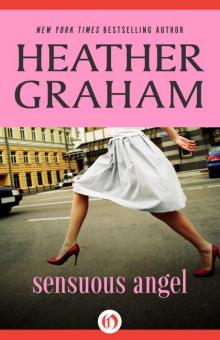 Sensuous Angel
Sensuous Angel In the Dark
In the Dark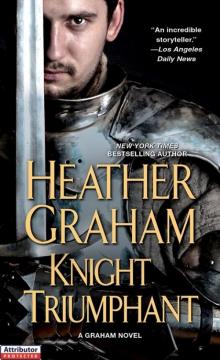 Knight Triumphant
Knight Triumphant Hours to Cherish
Hours to Cherish Tender Deception
Tender Deception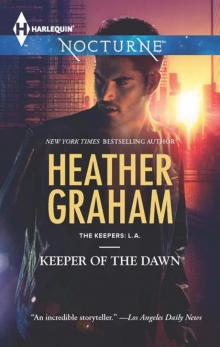 Keeper of the Dawn tkl-4
Keeper of the Dawn tkl-4 Apache Summer
Apache Summer Between Roc and a Hard Place
Between Roc and a Hard Place Echoes of Evil
Echoes of Evil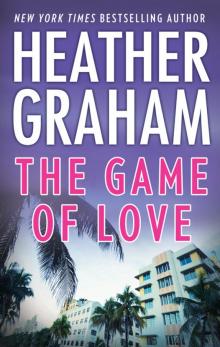 The Game of Love
The Game of Love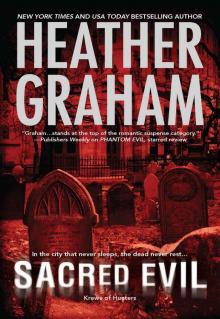 Sacred Evil (Krewe of Hunters)
Sacred Evil (Krewe of Hunters) Bougainvillea
Bougainvillea Tender Taming
Tender Taming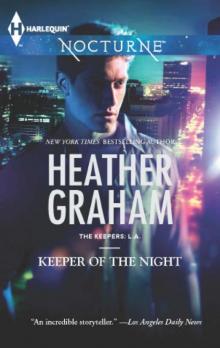 Keeper of the Night (The Keepers: L.A.)
Keeper of the Night (The Keepers: L.A.)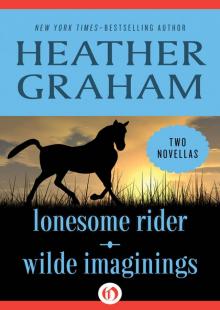 Lonesome Rider and Wilde Imaginings
Lonesome Rider and Wilde Imaginings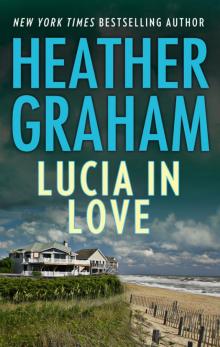 Lucia in Love
Lucia in Love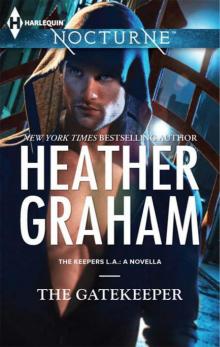 The Gatekeeper
The Gatekeeper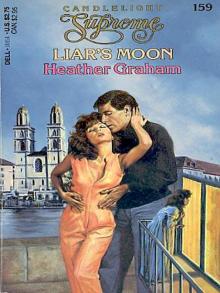 Liar's Moon
Liar's Moon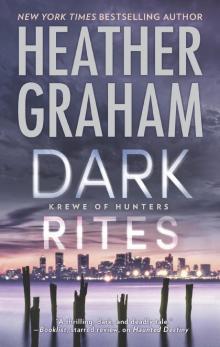 Dark Rites--A Paranormal Romance Novel
Dark Rites--A Paranormal Romance Novel A Season for Love
A Season for Love Krewe of Hunters, Volume 6: Haunted Destiny ; Deadly Fate ; Darkest Journey
Krewe of Hunters, Volume 6: Haunted Destiny ; Deadly Fate ; Darkest Journey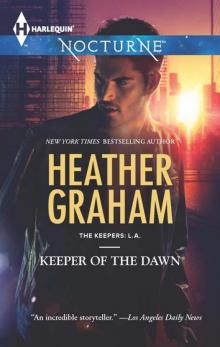 Keeper of the Dawn (The Keepers: L.A.)
Keeper of the Dawn (The Keepers: L.A.)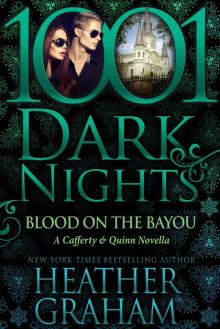 Blood on the Bayou: A Cafferty & Quinn Novella
Blood on the Bayou: A Cafferty & Quinn Novella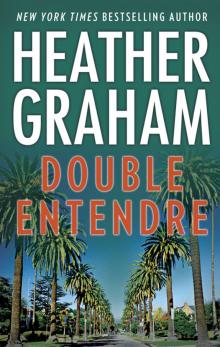 Double Entendre
Double Entendre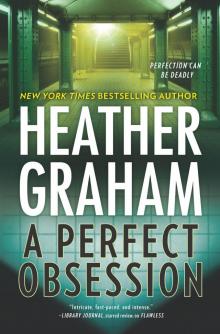 A Perfect Obsession--A Novel of Romantic Suspense
A Perfect Obsession--A Novel of Romantic Suspense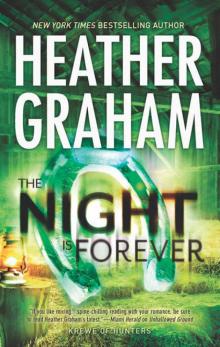 The Night Is Forever koh-11
The Night Is Forever koh-11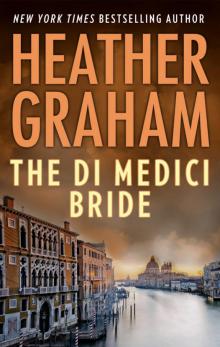 The Di Medici Bride
The Di Medici Bride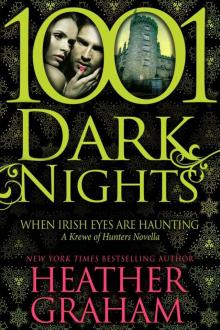 When Irish Eyes Are Haunting: A Krewe of Hunters Novella
When Irish Eyes Are Haunting: A Krewe of Hunters Novella The Keepers: Christmas in Salem: Do You Fear What I Fear?The Fright Before ChristmasUnholy NightStalking in a Winter Wonderland (Harlequin Nocturne)
The Keepers: Christmas in Salem: Do You Fear What I Fear?The Fright Before ChristmasUnholy NightStalking in a Winter Wonderland (Harlequin Nocturne)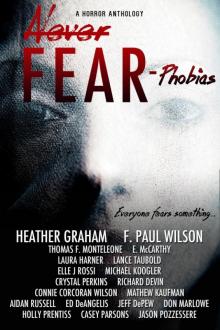 Never Fear
Never Fear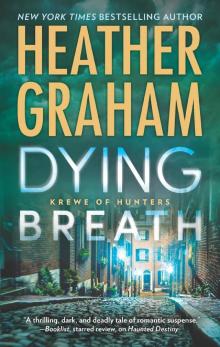 Dying Breath--A Heart-Stopping Novel of Paranormal Romantic Suspense
Dying Breath--A Heart-Stopping Novel of Paranormal Romantic Suspense If Looks Could Kill
If Looks Could Kill This Rough Magic
This Rough Magic Heather Graham's Christmas Treasures
Heather Graham's Christmas Treasures Hatfield and McCoy
Hatfield and McCoy The Trouble with Andrew
The Trouble with Andrew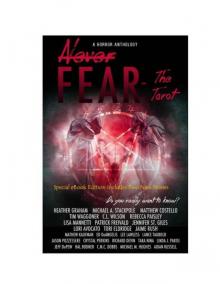 Never Fear - The Tarot: Do You Really Want To Know?
Never Fear - The Tarot: Do You Really Want To Know?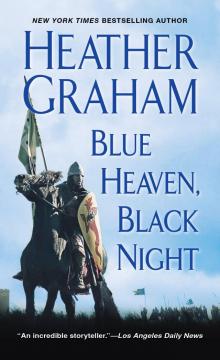 Blue Heaven, Black Night
Blue Heaven, Black Night Forbidden Fire
Forbidden Fire Come the Morning
Come the Morning Dark Stranger sb-4
Dark Stranger sb-4 Lie Down in Roses
Lie Down in Roses Red Midnight
Red Midnight Krewe of Hunters Series, Volume 5
Krewe of Hunters Series, Volume 5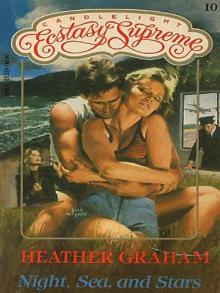 Night, Sea, And Stars
Night, Sea, And Stars Snowfire
Snowfire Quiet Walks the Tiger
Quiet Walks the Tiger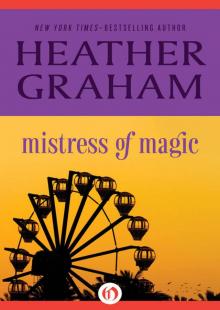 Mistress of Magic
Mistress of Magic For All of Her Life
For All of Her Life Runaway
Runaway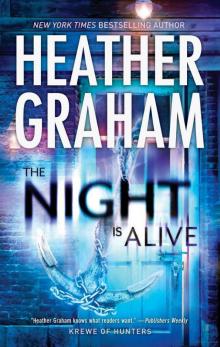 The Night Is Alive koh-10
The Night Is Alive koh-10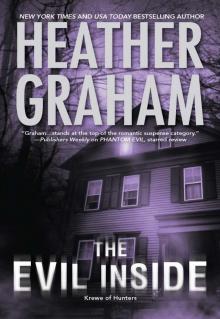 The Evil Inside (Krewe of Hunters)
The Evil Inside (Krewe of Hunters)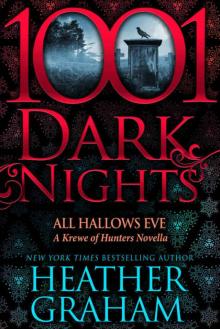 All Hallows Eve: A Krewe of Hunters Novella (1001 Dark Nights)
All Hallows Eve: A Krewe of Hunters Novella (1001 Dark Nights) Tomorrow the Glory
Tomorrow the Glory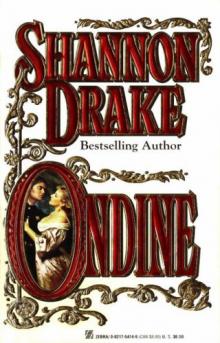 Ondine
Ondine Angel of Mercy & Standoff at Mustang Ridge
Angel of Mercy & Standoff at Mustang Ridge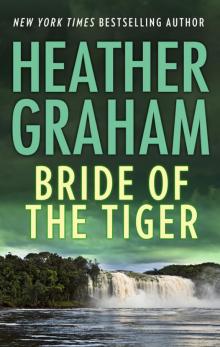 Bride of the Tiger
Bride of the Tiger When Next We Love
When Next We Love Heather Graham Krewe of Hunters Series, Volume 4
Heather Graham Krewe of Hunters Series, Volume 4 A Season of Miracles
A Season of Miracles Realm of Shadows (Vampire Alliance)
Realm of Shadows (Vampire Alliance)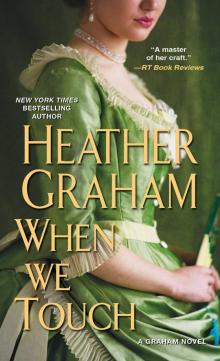 When We Touch
When We Touch Serena's Magic
Serena's Magic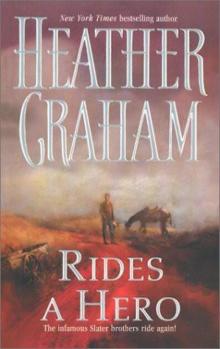 Rides a Hero sb-2
Rides a Hero sb-2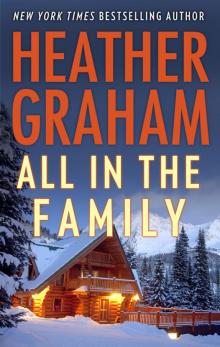 All in the Family
All in the Family Handful of Dreams
Handful of Dreams A Stranger in the Hamptons
A Stranger in the Hamptons Krewe of Hunters, Volume 2: The Unseen ; The Unholy ; The Unspoken ; The Uninvited
Krewe of Hunters, Volume 2: The Unseen ; The Unholy ; The Unspoken ; The Uninvited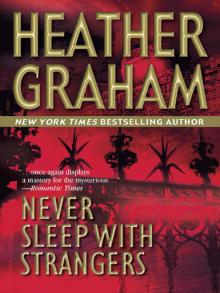 Never Sleep With Strangers
Never Sleep With Strangers Eden's Spell
Eden's Spell A Magical Christmas
A Magical Christmas Forever My Love
Forever My Love King of the Castle
King of the Castle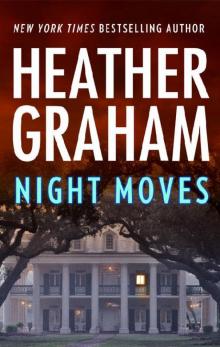 Night Moves (60th Anniversary)
Night Moves (60th Anniversary) The Island
The Island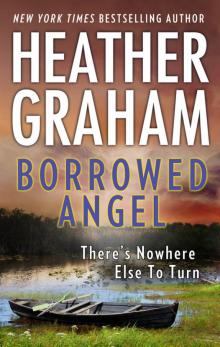 Borrowed Angel
Borrowed Angel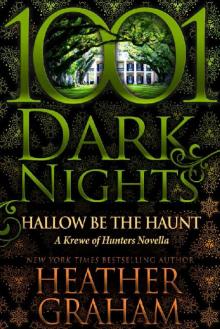 Hallow Be the Haunt: A Krewe of Hunters Novella
Hallow Be the Haunt: A Krewe of Hunters Novella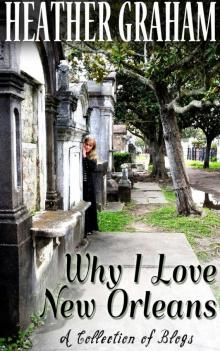 Why I Love New Orleans
Why I Love New Orleans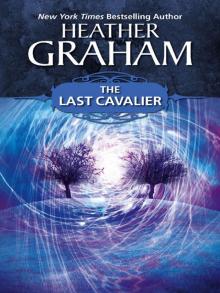 The Last Cavalier
The Last Cavalier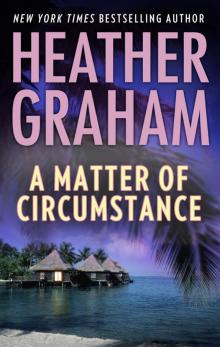 A Matter of Circumstance
A Matter of Circumstance Heather Graham's Haunted Treasures
Heather Graham's Haunted Treasures Tempestuous Eden
Tempestuous Eden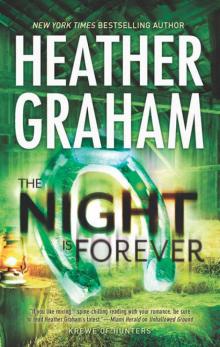 Krewe 11 - The Night Is Forever
Krewe 11 - The Night Is Forever